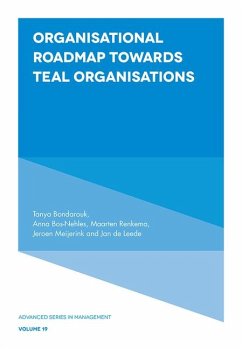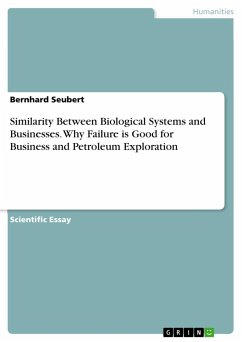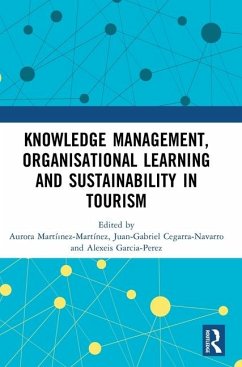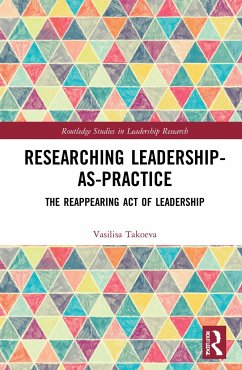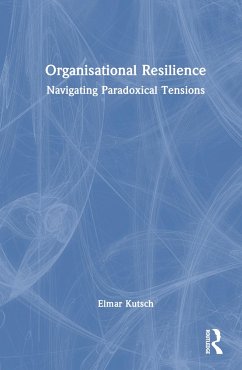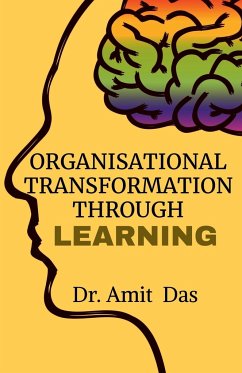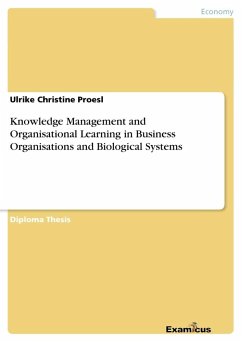
Knowledge Management and Organisational Learning in Business Organisations and Biological Systems

PAYBACK Punkte
0 °P sammeln!
Diploma Thesis from the year 2000 in the subject Didactics - Business economics, Economic Pedagogy, grade: 1, , language: English, abstract: Writers on management and organisational excellence today provide a set of prescriptions which they argue will lead to healthy, well functioning firms. Within the management sciences there has been a growing tendency to view organisations as complex systems, that is, to describe them as organisms. Increasingly the hard sciences are being used to describe and analyse organisations. In the field of creative problem solving several systems authors have advoc...
Diploma Thesis from the year 2000 in the subject Didactics - Business economics, Economic Pedagogy, grade: 1, , language: English, abstract: Writers on management and organisational excellence today provide a set of prescriptions which they argue will lead to healthy, well functioning firms. Within the management sciences there has been a growing tendency to view organisations as complex systems, that is, to describe them as organisms. Increasingly the hard sciences are being used to describe and analyse organisations. In the field of creative problem solving several systems authors have advocated the use of metaphors to describe certain aspects of organisations. In reviewing much of today's management literature we are exhorted to use benchmarks, for a variety of management tasks. In reviewing organisational excellence we are duty bound to find a measure that will be relevant tomorrow as well as today. Conjoining these current themes in management, this thesis seeks to review what we know about the effective collective functioning of selected species and to compare these natural systems with organisational systems. We posit the question: Can an understanding of the functioning of natural systems help us to understand how organisations function. If so, what can we learn about the effective functioning of organisations. Firstly we will review common management theories, with a focus on organisational learning and knowledge management. Secondly we will look at three natural organisations: Honey bees, leaf-cutter ants and the African locust. We want to find out how these organisations function, and specifically search for knowledge management and organisational learning within these biological systems. Then we will try to link management theories with our findings in natural organisations. This approach will finally deliver some interesting hypothesis about knowledge management and organisational learning - both valid for human and natural organisations.





